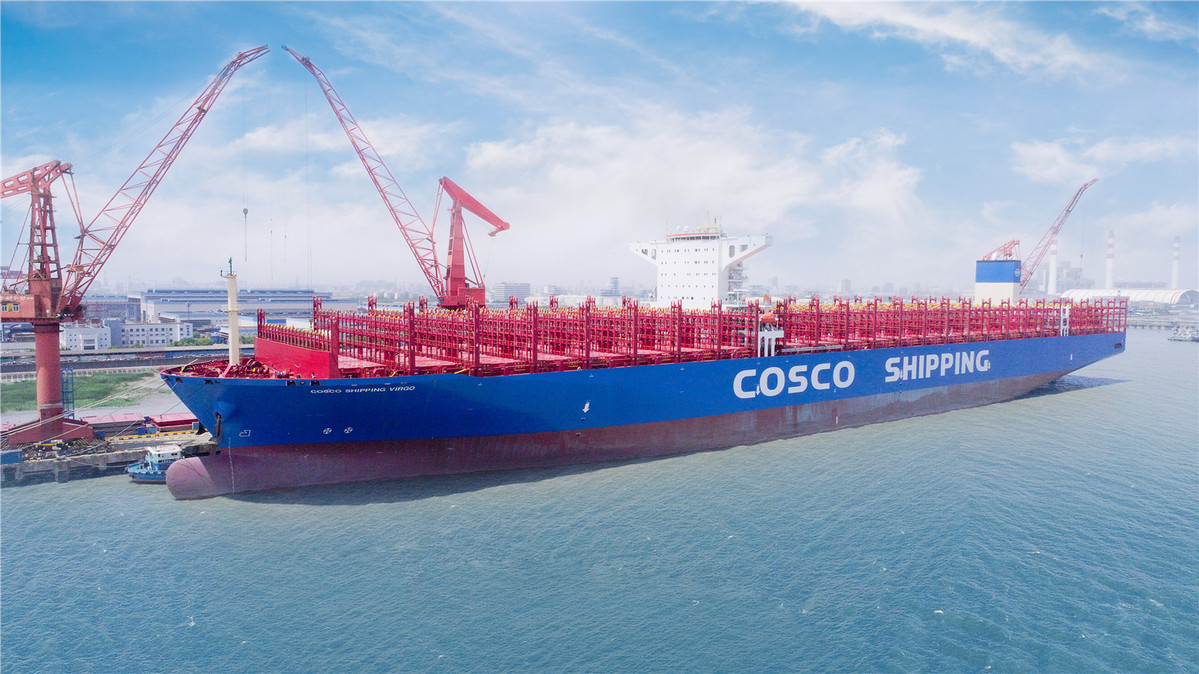COSCO urges multilateral benefits in overseas business


China COSCO Shipping Corp, China's State-owned shipping and logistics giant, calls for multilateral benefits in its overseas business in economies involved in the Belt and Road Initiative, said the company's chairman.
Xu Lirong, chairman of China COSCO Shipping, said as international cooperation under the country's call for the BRI has gone deeper, more systematic and efficient, it is also more challenging. Thus, Xu said the key was to achieve multilateral benefits for the parties involved.
Taking the Port of Piraeus in Greece that China COSCO Shipping acquired in 2016 as an example, Xu said since the company took over the port operations in 2009, the throughput capacity has increased from 680,000 metric tons a year to over 5 million tons a year till the end of 2018. The port, previously losing profits before the acquisition, has generated 70 million euros ($78 million) as of the end of 2018.
"We don't simply aim for financial return, but wish to lift the local development through investment," said Xu. "The Port of Piraeus was a small port in the Mediterranean Sea. Since China COSCO Shipping took over operations, the port has become a large port, adding over 8,000 jobs to the local economy. We aim to increase that to 31,000 jobs and also add 0.8 percentage points to Greece's GDP by 2025."
China COSCO Shipping also aimed to increase the country's logistic industry output from 400 million euros in 2015 to 2.5 billion euros by 2025 through the Port of Piraeus.
The company has actively engaged in social responsibility and the local infrastructure, including donating to the local primary school, providing food aid and improving the environment.
Apart from the port in Greece, China COSCO Shipping has so far invested 167 container lines in economies involved in the BRI, with total throughput capacity counting for 58 percent of the company's total shipping capacity, according to Xu.
2018 marked a fruitful year for China COSCO Shipping in its overseas career under the BRI initiative, as Xu said the group had increased its container throughput capacity by 5 percent year-on-year and added 18 Eurasian sea-rail intermodal transportation lines.
"In 2018 our clients have seen an explosive increase from three in 2016 to 635, covering nine countries in central and east Europe," he said.
Andrew Mackenzie, CEO of Australia's largest mining company BHP Group plc, also recognized that China has achieved astonishing results in gaining mutual benefits and creating a win-win situation in its BRI-related activities, which has contributed greatly to eliminating poverty and creating jobs.
He said China will continue to power the global economy despite the slowing down of its domestic economic growth.
In risk management, Xu said the key was to comply fully with local laws and regulations and improve local livelihoods through projects and investment.
"During an investment, we don't simply look for financial return, but focus on more to create an entire industrial chain for the local area in order to achieve mutual development, economic benefit and value."




































